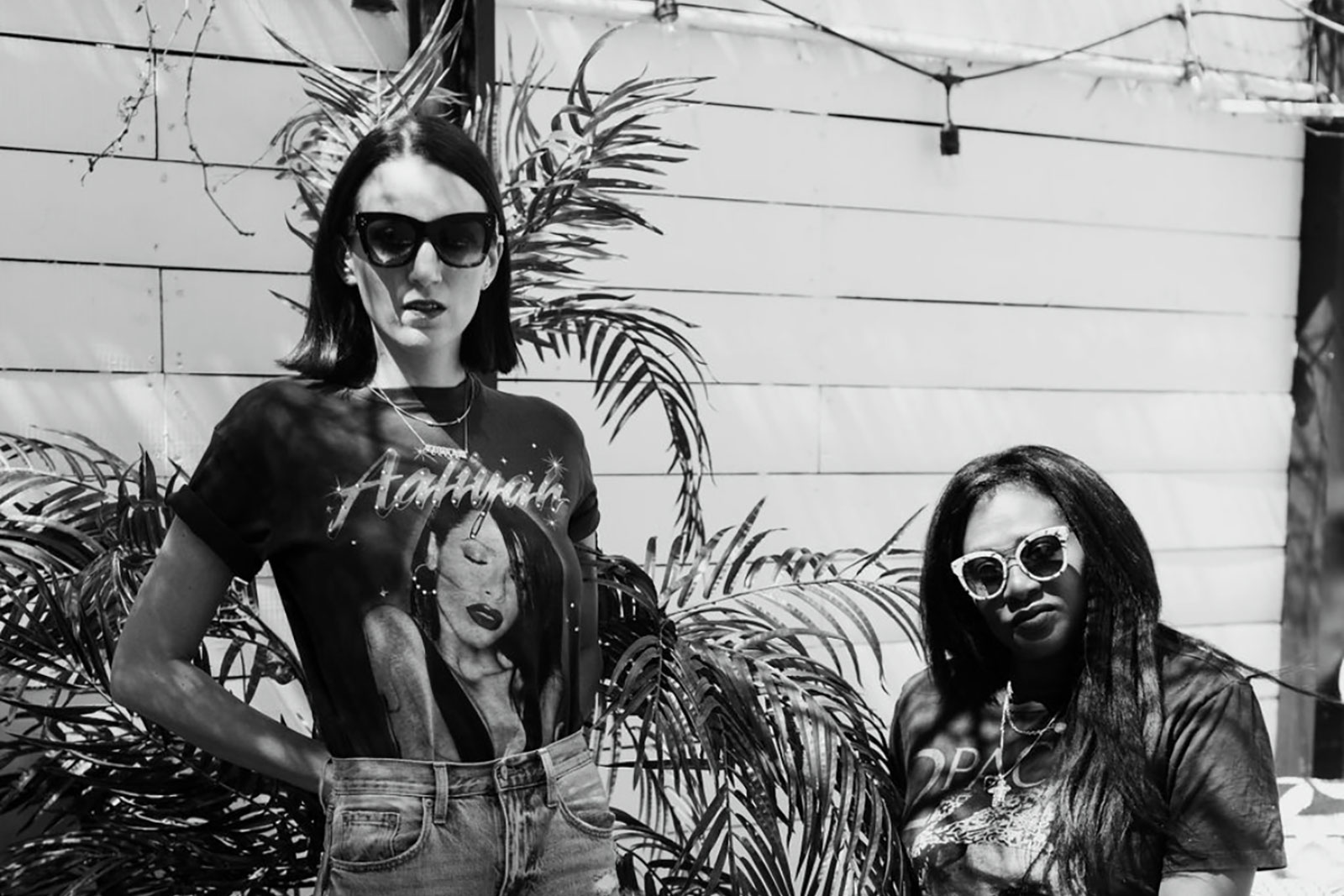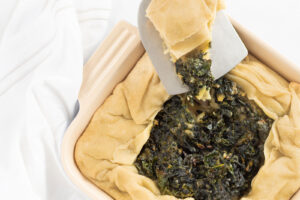Surviving a cancer diagnosis can inspire you in tremendous ways. Some desire to give back and use their survivorship to help others navigate the unknown territory of cancer. From helping others start a family, finding clean beauty products and building community for others starting their cancer journey, each of the founders introduced below have made it their vocation to use learned experiences to improve life for those maneuvering the complexities and unknowns of this terrifying disease.
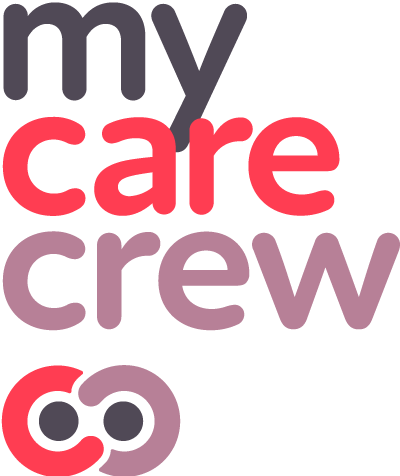
Paoola Sefair & Agnieszka Jank, cofounders of the My CareCrew app
In 2015, Paoola Sefair noticed she was having a hard time swallowing when she turned her head. She wasn’t overly concerned, but her doctor ordered a few tests just to make sure all was well. With her one-and-a-half year old on her lap, Sefair’s physician walked into the exam room and delivered the news: “It’s cancer, kiddo.”
Sefair was in a daze. “I don’t recall hearing most of the things the doctor said during that appointment. I just remember looking at my son’s little face and thinking, ‘Am I going to see him grow up?’” Next came a steady stream of appointments, surgeries and radiation to treat her thyroid cancer.
Around the same time, her close friend Agnieszka Jank was diagnosed with breast cancer. The two supported each other through appointments and scans. When Jank’s cancer spread to her brain, Sefair continued to do everything she could for her friend — arranging meal deliveries and house cleaning services — but found it was hard to coordinate everything around Jank’s appointment and treatment schedule. The two wished there was an app that could help.
That’s why, in 2020, Sefair and Jank created one. The purpose of the My CareCrew app is to streamline the entire care process. “The My CareCrew app offers an all-in-one app for patients and caregivers to share health updates with friends and family, create a wish list [for things like gifts and meals] and coordinate support with chores, transportation, errands and more,” Sefair explains. This free app also includes a symptom and mood tracker, which allows patients to update their community in real time.
Jank succumbed to her disease, but her legacy will live on through this incredible resource she created with Sefair. “I am grateful that through My CareCrew, [Jank’s] love, smile, courage, empathy, humor, dedication and determination will always be with us,” Sefair says. “She was the inspiration for My CareCrew, and now she is our guardian angel.”
Sarrah Bentley, Victoria Raphael and Ann Palmer, founders of A Damn Good Life
Sarrah Bentley was 38 when breast cancer shook her world. She was diagnosed in September 2020, when the whole world was in lockdown due to the pandemic. She was excited to start a family with the love of her life, but everything was put on hold to prepare for the fight of her young life. Suddenly, she was not only dealing with a cancer diagnosis, but how treatment might affect her fertility.
She went through two rounds of IVF, which resulted in one viable embryo. After completing cancer treatment, Bentley was placed on hormone therapy to help prevent recurrence, and knew that surrogacy would be her only option to have a baby. She was fortunate that she was able to afford the estimated $150,000 cost of a surrogacy journey, but she knew this was not the case for many women in her situation.
Bentley joined forces with Ann Palmer (a fellow breast cancer survivor) and Victoria Raphael (who, like Bentley, was also in the process of a surrogacy journey following a breast cancer diagnosis) to found A Damn Good Life, a nonprofit dedicated to providing young breast cancer survivors with resources to help grow their families through surrogacy.
“We began A Damn Good Life when we all saw a giant hole in financial assistance offered to young breast cancer survivors surrounding surrogacy,” Bentley says. As their mission statement asserts, “A Damn Good Life will provide a future family with access to the surrogacy journey, top to bottom, from day one. From helping to match the recipient with an agency, to providing 100% financial support and acting as a support system in the process; we will give the gift of a family where one didn’t seem possible.”
To raise money, the trio host fundraising events, including a luau, a poolside soiree at a swanky New York hotel and exclusive yoga classes at Bloomingdales (led by Bentley, a professional yoga instructor). Their fundraising efforts have paid off, and A Damn Good Life will soon be offering their first full grant. As the founders say, “Having a baby should be every woman’s choice, and we want to create possibility where it was taken away by breast cancer.”

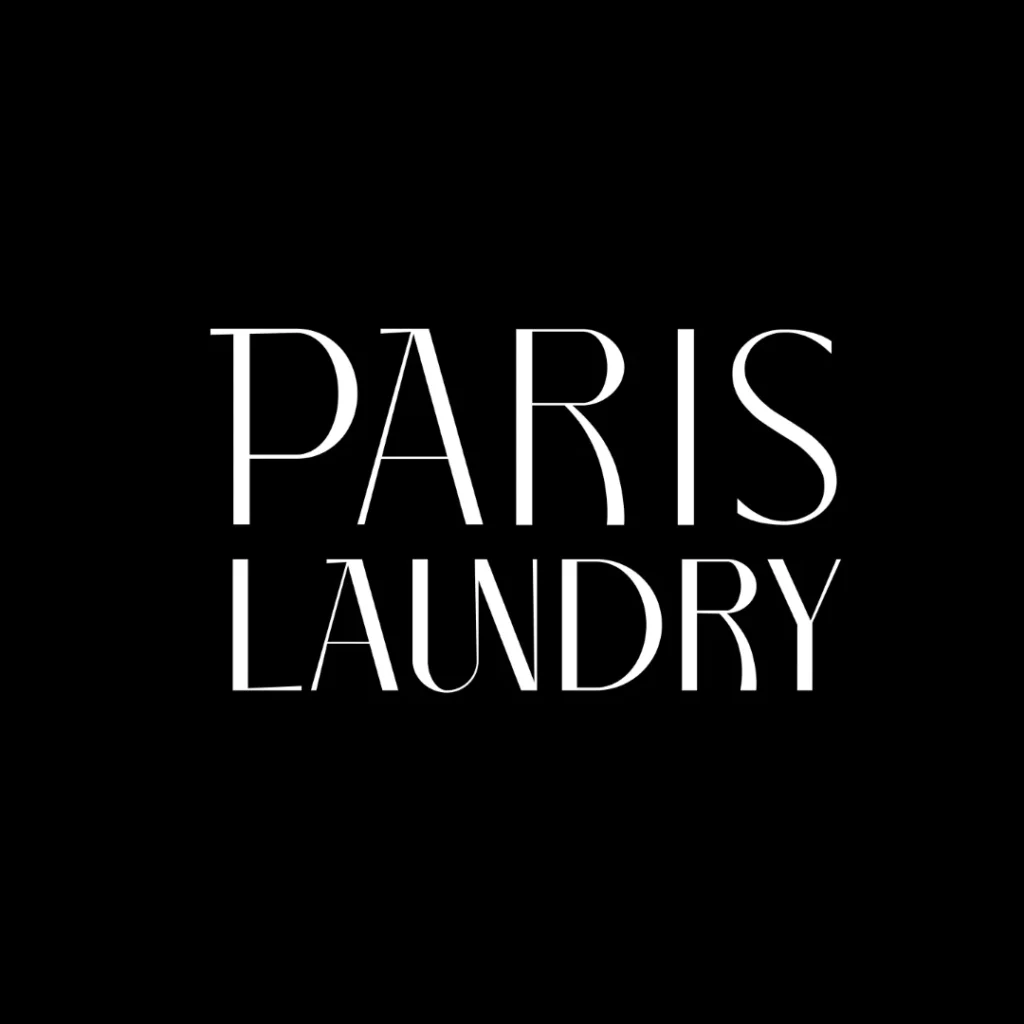
Kelsey Bucci, founder and CEO of Paris Laundry
In 2018, when Kelsey Bucci started her online beauty and wellness boutique, Paris Laundry, she was 30 years old and in the midst of intensive treatment for stage II breast cancer. “My skin reacted horribly to chemotherapy, and I wanted to use products that were as natural as possible,” Bucci says, “So I started making my own.”
In addition to her own products, Paris Laundry carries more than 50 clean beauty brands that “adhere to my strict ingredient restrictions, and that have similar beliefs about beauty and wellness,” Bucci says. She is a firm advocate that what you put on your body is as important as what you put in it. Beauty products that make it into both her online and her Savannah, Georgia brick-and-mortar shop must follow her criteria: “Real products with plant-powered ingredients to help create an elevated lifestyle,” she says. “We only carry high quality natural products that perform.”
With a background in merchandising and styling, the mother of four always knew she wanted to one day run her own business, but it wasn’t until she was diagnosed with breast cancer that she figured out what that company would look like. “I just knew that if I was having a hard time finding truly clean, natural and safe products through cancer treatments, other women were probably looking for them, too,” Bucci says. And her product list is extensive, from bath and body, hair, skin and even home goods. Paris Laundry truly aims to “inspire wellness for every aspect of your life,” according to Bucci.
Trish Michelle & Tiffany Dyba, founders of Hip Hop Happy Hour
When Trish Michelle and Tiffany Dyba met at a Friendsgving party in 2018, they eagerly exchanged Instagram handles. They’d both been diagnosed with breast cancer in their mid-30s and were excited to keep in touch. When the pandemic hit in 2020, they saw social media as an opportunity to connect with fellow survivors, and they started the Hip Hop Happy Hour on Instagram Live, which they hosted every Friday. “Our weekly show supports and celebrates those in the cancer community through our shared love of community, advocacy and hip hop,” Michelle and Dyba told cW over email.
A handful of listeners quickly grew to thousands of engaged followers, because it’s not just about music and laughs — although there are lots of both — the duo also used their platform to promote a new initiative called Reclaim October, where the focus is on removing the “pinkwashing” of Breast Cancer Awareness Month, while raising awareness and funds for breast cancer organizations. During October, their Friday programming ends with an Instagram Live featuring breast cancer experts and community members, as well as a live fundraising event, where money raised goes directly to fund research or support those in treatment. In October 2021, they raised almost $20,000 through their Instagram efforts alone. According to Michelle and Dyba, the Hip Hop Happy Hour is “not your average cancer community providing a shoulder to cry on, it’s a group of dedicated, outspoken and often expletive-laced people who refuse to let cancer define us.”
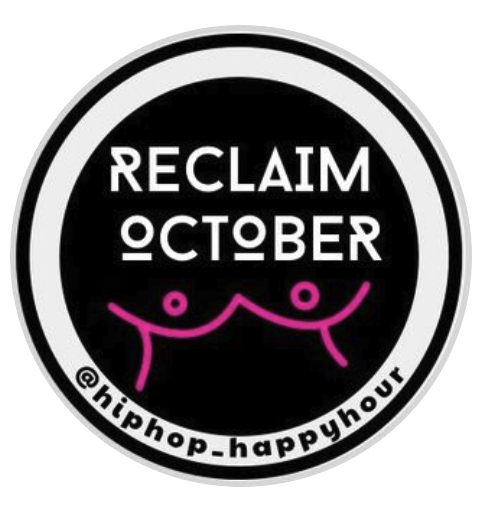
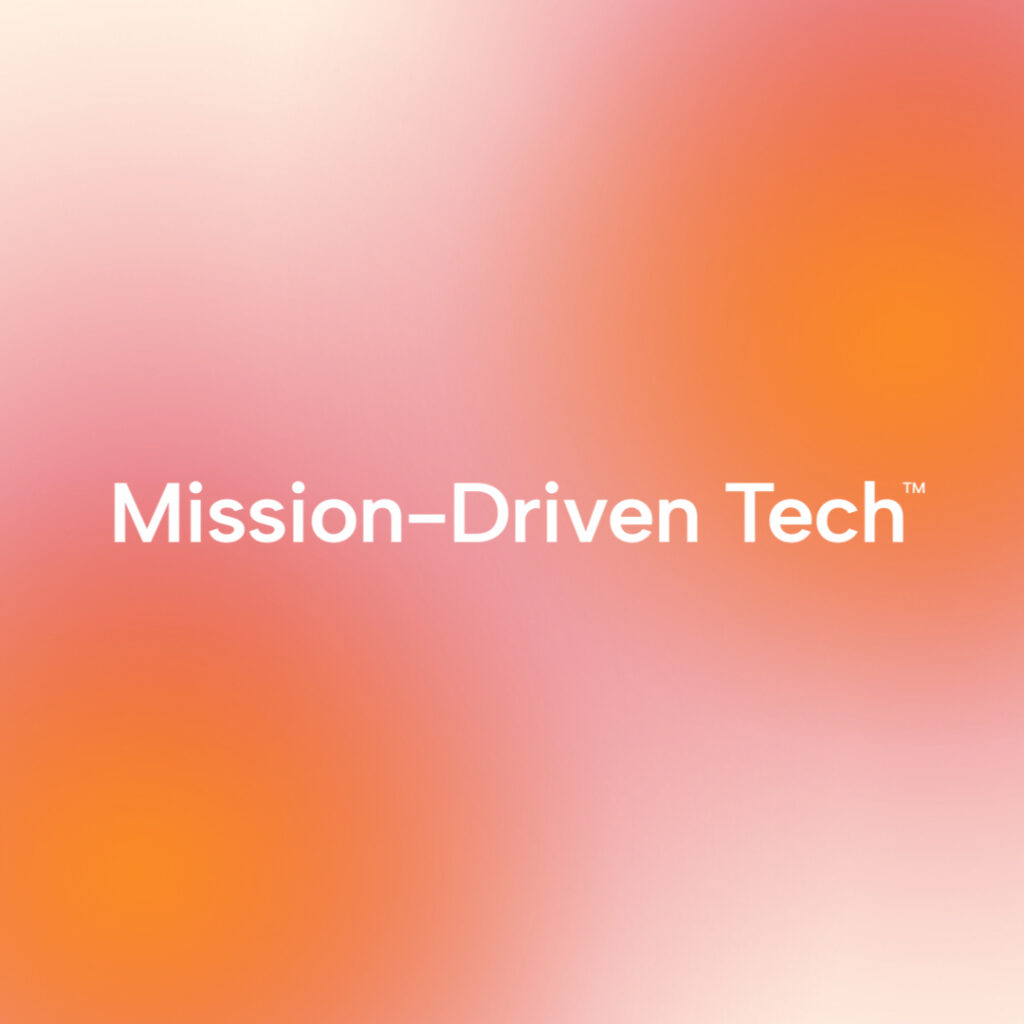
Eve McDavid & Dr. Onyinye Balogun, cofounders of Mission Driven Tech
Eight months pregnant with her second child, former Google executive Eve McDavid was shocked to learn that she had stage IIB cervical cancer. Her medical team mobilized quickly to treat the aggressive cancer and ensure her baby was delivered safely. Luckily, McDavid was able to receive treatment at one of the world’s top cancer centers and responded incredibly well to treatment protocol, receiving “a statistically extraordinary outcome,” she says. But she soon discovered she was lucky, as most patients don’t have access to these treatments.
“When I learned that my outcome was the exception, and not the rule, I wanted to do everything in my power to make treatment both more accessible and more humane than the current state of care,” McDavid says. In May 2022, McDavid and Dr. Onyinye Balogun, a radiation oncologist who McDavid met during her treatment, founded Mission Driven Tech. McDavid describes the company as “a new women’s health venture, backed by Weill Cornell Medicine, dedicated to the transformation of gynecologic cancer care with modern technology.”
The organization’s goal is to provide all cervical cancer patients with access to the best tools and treatments. Mission Driven Tech won the Weill Cornell Medicine Business Plan Challenge, and it’s positioned to make great strides in cervical cancer care. “We’re very much a part of the global movement to improve women’s health, and now with the medical and investment communities at our backs, we’ll be successful,” McDavid says.

